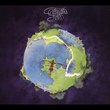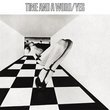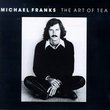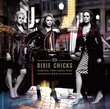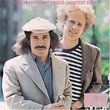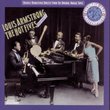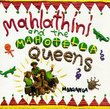| All Artists: Yes Title: Yes Members Wishing: 6 Total Copies: 0 Label: Atlantic Original Release Date: 1/1/1969 Re-Release Date: 9/20/1994 Album Type: Original recording reissued, Original recording remastered, Import Genres: Pop, Rock, Classic Rock Styles: Progressive, Progressive Rock, Psychedelic Rock, Album-Oriented Rock (AOR) Number of Discs: 1 SwapaCD Credits: 1 UPC: 075678268021 |
Search - Yes :: Yes
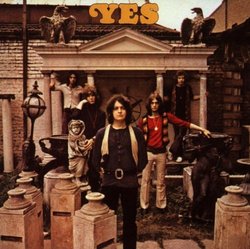 | Yes Yes Genres: Pop, Rock, Classic Rock
|
Larger Image |
CD DetailsSimilar CDs
Similarly Requested CDs
|
CD ReviewsBeyond and Before...well, certainly "before" Squonk | The dark forests of Pennsylvania, where hunters fo | 10/18/2006 (3 out of 5 stars) "This album is one of music history's almost completely forgotten chapters. In the beginning, a man with negligable instrumental talent yet a phenominal voice (Jon Anderson) met with a bassist who would eventually become, far and wide, one of the greatest in the history of the instrument (Chris Squire). After recruiting a guitarist (Peter Banks), a keyboardist (Tony Kaye), and a drummer (Bill Bruford), these two men started the band we all know and love. Yes was born. This album has few but unmistakable instances of brilliance, and even this early on, it was quite apparent that this group--after they gained some experience--could rise to monumental heights. And they did. They just didn't do it by playing the music you will find on their debut album. 'Yes' (1969) is an odd creature. First of all, the production quality is lamentable, even for 1969. Even if music analysts might have had high hopes for Yes, certainly Atlantic records didn't. The band were obviously shoved in a backwater studio somewhere and recorded by a totally skilless sound producer. Second of all, there are two covers from the original set of eight tracks. The band, while quite capable of producing its own original material, still clutched firmly to its mother's bosom, it seems. The band at times sounds like no more than a Beatles clone, and yet, there are a few shining glimpses of something that would eventually far outstrip the scope and quality--if (unfortunately) not the popularity--of the cookie-cutter rock bands like the Beatles produced. And that will be what I concentrate upon in this review. Normally I would do a track-by-track breakdown, but in this instance, I will comment upon just three selections, and not in order, either. 1. "Beyond and Before" - This song is the pinnacle of the more mainstream-bound brand of Yes rock. I consider it prudent because, while no aspect of this track is represented in the "Classic Period" of Yes (1971 through 1977), this particular selection shows another possible path the band could have taken. Die-hard Yes fans thank their lucky stars the band didn't imitate this song in their future escapades. Even mired within this track is the musical competency of the three core members of the band (Anderson, Squire, and Bruford), though it is not directed toward a project even approaching the magnitude of something from the Classic Period. There is something charming about this song. Charming, but nothing else. 8. "Survival" - This track reveals the arrangement skills of the band, as well as their penchant for slightly longer-form songs (they would extend this in years to come). The layered vocal harmonies are more in the vein of 1960's mainstream music than the progressive mastery the band would explore in later years, but they still demonstrate the emerging vocal prowess of the band. Most significant, however, is the experimental arrangement of this track, with a beginning section that contrasts the main song body. Furthermore, snatches of this beginning portion are slipped into the the main song body, thereby binding the two together. Still, this track suffers from extremely poor production, inexpertly performed backing vocals (this improves drastically by 'The Yes Album'), and horribly dated organ registration and a limited instrumental palate. 5. "Harold Land" - This, more than any other track on this album, indicates the direction in which Yes would head. And, in my honest opinion, had they not experimented any further and had perfected this particular style, I believe they would have been successful in a completely new way. I would not have minded listening to a band that produced work like "Harold Land." Instead, of course, the band gave us the unparalleled work they did in later years. "Harold Land" is the most progressive track on the album. Beginning with an atrociously arranged sequence (it sounds like ghastly gameshow music), the song suddenly launches into a rush of inspired brilliance. Now where the hell was that in the beginning?! Jon Anderson comes in, with a tone that must be heard to be believed. It is in some ways more expressive than he would become in later years, more raw and emotionally charged. It's also more immediate and urgent, somehow. It's a tone I sometimes wish he would have distilled and conjured occasionally on some of the classic material. It's a one-of-a-kind element of this very brief era of the band's catalogue. The background vocals are really, really bad. Some of this was the producer's fault, who let stuff like the teeth-gnashingly horrid foghorn tone to precipitate into the mix not once but twice in the "Going home" sequence. The vocal levels are completely random; sometimes Jon is obscured by the backing vocals, sometimes the balance is correct, and other times he's blasting. The most noticible instance of the latter is when he sings "There is no heart in Harold Land!" Here it literally sounds like he leaned about a millimeter away from the microphone when he belted out that line. All these things are sort of charming, yet much more unfortunate. This song deserved a better arrangement, and certainly better production. Where was Eddie Offord when the band needed him? There are some generalities that apply to this album. Jon Anderson's vocals are spot-on. Even wreathed in the substandard background vocals of his bandmates, one can hear Jon's distinctive, optimistic tone lilting upon the ugly oil sea of his bandmates. Also, Squire and Bruford have occasional moments that show their singular talents on their respective instruments. In addition, there are fleeting glimpses of the compositional brilliance--most notably on "Harold Land"--the band would develop in later years. Finally, and probably most apparent, the lyrics are not the high-brow, esoteric material the band would first explore in 'The Yes Album.' Jon Anderson had not yet become the commendable poet he would be in later years and on later albums. All the material on this album is highly accessible lyrically. Is this album anywhere near the work the band would later produce? Absolutely not. And I must judge it by the same standard by which I judge the other Yes material. And when your curve is set by the greatest album in all of music (1972's 'Close to the Edge'), somehow this debut album--though unfairly overlooked--just pales in comparison. No, 'Yes' doesn't even come close to the Classic Period of the band's canon, but is it an essential album for die-hard Yes fans to own? Absolutely! You truly have to pay homage to the phenominal bunch of talent that is Yes, and what better way to do that then by starting at the beginning and glimpsing between the fronds the rising sun that would eventually reach over the horizon in 1971, with 'The Yes Album.'" YEP! R. Recchia | blodgett mills, ny | 07/01/2002 (3 out of 5 stars) "NOT BAD FOR A DEBUT ALBUM! The sound here is rather raw for YES;
JON ANDERSON's voice sounds very strained and scratchy on a few songs, tho' he still sounds great! CHRIS SQUIRE's bass guitar is the lead instrument on much of this, providing the melody for some of the songs. I really love the opening song BEYOND AND BEFORE; this is a very powerful and heavy song, with a very catchy bass guitar line and some very raw and electric guitar soloing from PETER BANKS. The vocals are also outstanding on this song and BILL BRUFORD really has a blast smashing away at his cymbals and his snare drum! I SEE YOU is also a great tune, with PETER BANKS longest guitar solo with YES.There's a slightly jazzy feel to this song! YESTERDAY AND TODAY is a quiet, mellow song and leads right into the hard rocker LOOKING AROUND, which has some nice Hammond organ playing from TONY KAYE. HAROLD LAND is also an enjoyable song, with a very prominent bass line from SQUIRE. Those YES fans not familiar with their two first albums may be pleasantly surprised at how good this album is, as I was!" |

 Track Listings (8) - Disc #1
Track Listings (8) - Disc #1